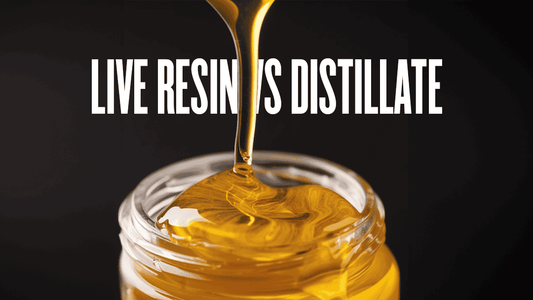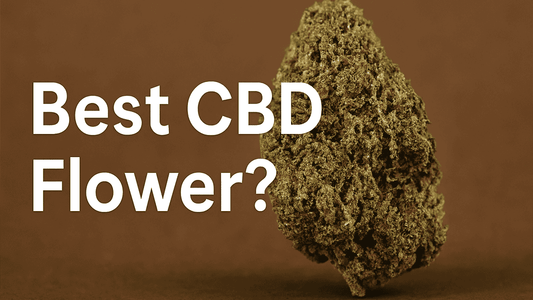CBD, or cannabidiol, has become immensely popular for its potential therapeutic benefits. Whether you're using it for anxiety, pain relief, or to relax, it's essential to understand how long CBD stays in your system. This knowledge can help you manage dosages and plan usage around important events or drug tests.
Understanding CBD's Half-Life

The half-life of CBD in the body can range from about 1 hour to up to 5 days. The term "half-life" refers to the time it takes for the body to eliminate half of a substance. Typically, it takes around four to five half-lives for a drug to be entirely cleared from your system.
Factors such as the method of consumption, dosage, and individual metabolism play significant roles in determining how long CBD will stay in your system.
Factors Influencing CBD Retention

1. Method of Consumption
- Oral Consumption: When you consume CBD orally through CBD oil or gummies, it passes through the digestive system and liver. This process, known as first-pass metabolism, can slow down the absorption and prolong the duration of CBD stays in your system.
- Inhalation: Smoking or vaping CBD flowers and hash allows CBD to enter the bloodstream quickly through the lungs, leading to faster onset but also quicker clearance.
- Sublingual: Placing CBD oil under the tongue enables it to be absorbed directly into the bloodstream, bypassing the digestive system. This method balances both quick absorption and longer retention.
2. Dosage and Frequency
Higher doses and frequent use can accumulate CBD in your body, prolonging its presence. Regular users might find that CBD stays in their system longer than occasional users.
3. Individual Metabolism
Metabolism varies significantly between individuals. Age, weight, and overall health can affect how quickly your body processes and eliminates CBD. Younger individuals with faster metabolisms might process CBD more quickly than older adults.
CBD Detection Times

1. Blood
CBD is detectable in the blood for a relatively short period. After a single use, CBD might be detectable for only a few hours. However, regular use could detect it for up to a week.
2. Urine
Urine tests are more common for detecting drug use. While CBD itself isn't typically tested for, THC (the psychoactive component in cannabis) might be. CBD products can contain trace amounts of THC. Generally, CBD can be detected in urine for about 3 to 5 days. With heavy use, it might be detectable for up to a month.
3. Saliva
Saliva tests can detect CBD for a few hours up to 36 hours after use. This method is less common but is sometimes used in roadside drug testing.
4. Hair
CBD can be detected in hair for up to 90 days. Hair tests are less common due to their high cost and longer processing times.
How to Manage CBD Intake

Understanding how long CBD stays in your system can help you manage its intake better. Here are some tips:
1. Track Your Dosage
Keep a journal of your CBD intake, noting the amount, method, and time of consumption. This can help you understand how your body reacts and adjusts over time.
2. Adjust Based on Need
If you have an upcoming drug test or need to ensure CBD clears your system, adjust your dosage and frequency accordingly. Switching to lower doses or less frequent use can help.
3. Stay Hydrated
Hydration can aid in the elimination of substances from your body. Drinking plenty of water might speed up the process.
4. Consider Different Products
Different CBD products have varying impacts on how long CBD stays in your system. For instance, CBD oil taken sublingually might clear faster than CBD gummies that need to pass through the digestive system.
Frequently Asked Questions
How Long Does CBD Last in a Urine Test?
CBD can be detected in urine for about 3 to 5 days. However, it might be detectable for up to a month if used heavily or regularly. Urine tests primarily check for THC, but CBD products with trace THC might show up.
How Long Does It Take to Flush Out CBD?
Flushing out CBD can take a few hours to several weeks, depending on factors like metabolism, dosage, frequency of use, and method of consumption. Staying hydrated and active can help speed up the process.
How Long Does CBD Cream Stay in Your System?
CBD cream, applied topically, generally does not enter the bloodstream significantly. It targets local areas and is unlikely to show up in drug tests. The duration to which it affects your skin can vary but typically lasts a few hours to a day.
How Long Does It Take to Come Down from CBD?
The effects of CBD can last from 2 to 6 hours, depending on the dosage and method of consumption. The "come down" from CBD is usually gradual and not abrupt, as CBD is non-psychoactive and does not cause a high.
How Quickly Does CBD Calm Anxiety?
CBD can start calming anxiety within 15 to 30 minutes when inhaled or taken sublingually. Oral consumption, like gummies or capsules, might take 1 to 2 hours to take effect due to digestion and absorption processes.
Does CBD Make You Feel Spacey?
CBD is generally not known to make users feel "spacey". It is non-psychoactive and does not induce the euphoric high associated with THC. However, high doses might cause mild drowsiness or light-headedness in some individuals.
How Is CBD Cleared from the Body?
CBD is metabolized in the liver and then excreted via urine and faeces. When taken orally, it undergoes first-pass metabolism, which can affect its bioavailability and clearance rate.
How Long Does a CBD Edible Take to Wear Off?
CBD edibles can take 6 to 8 hours to wear off. The onset is slower than other methods, typically taking 1 to 2 hours to feel the effects, but the duration is longer.
How Do You Feel After Taking a Lot of CBD?
Taking a high dose of CBD might lead to mild side effects such as drowsiness, dry mouth, or light-headedness. However, it does not produce a high. Most people report feeling relaxed and calm, but individual reactions can vary.
Final Thoughts
Various factors, including consumption method, dosage, frequency, and individual metabolism, influence the duration of CBD in your system. Typically, CBD can stay in your system from a few hours to up to a month. Understanding these factors can help you make informed decisions about your CBD use.

 4.6 Rating. Excellent.
4.6 Rating. Excellent.




